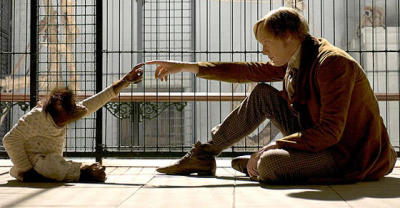Fingerprints in the cell – How science is killing Darwinism

On November 24th, 1859, Darwin published his book, On the Origin of Species. Hailed as a revolutionary way of explaining the diversity of life on earth, Darwin posited natural selection as the mechanism which caused complex body plans to evolve from a singled-celled organism. His theory, though beautifully elegant, has undergone harsh criticism in the academic community, and it looks as though natural selection itself, may be unfit for survival.
In 2016, members of the Royal Society of London met to discuss the call for revisions to the standard theory of evolution. Distinguished evolutionary theorist Gerd B. Müller, who led the first talk of the conference, states: “The theory largely avoids the question of how the complex organizations of organismal structure, physiology, development or behavior – whose variation it describes - actually arise in evolution”. What Müller points out is that natural selection is great at explaining why small changes occur in organisms. Superbly Woolly sheep might survive in cold climates better than sheep with thin coats of wool, and death (natural selection) will slowly weed out the thinly coated sheep. What natural selection cannot account for is complex changes, like how a single-celled organism could evolve into a jellyfish, or monkey, or anything other than a single-celled organism.
Although I never made the leap to believe that human beings came from monkeys, some Christians do, and I always figured there was at least something behind the fuss of evolution. That’s why I was somewhat shocked to learn that after 160 years, the scientific evidence shows that Darwinian evolution cannot account for complex body plans at all. 160 years is a long time, and though Neo-Darwinism is dogma for many, the evidence against Darwin’s theory is growing like a snowball going down a hill. One critically damning clue in the case, which lay people like myself can understand, is the information in DNA.
In the 1950s, scientists James Watson and Francis Crick, made the ground-breaking discovery that DNA carries information. It turns out that a complex process is happening inside our cells, something very much like a manufacturing assembly line, controlled and directed by code, or genetic information. Every organism is made up of proteins, and the building of these proteins is directed by the information in DNA. Like computer software and hardware, DNA (and RNA) provides and transmits the correct sequence of code in order to build new proteins. Just like with software and hardware, if the code is wrong the process fails and the new protein will not be built.
The formation of proteins is far more complex and precise than Darwin could have ever imagined. So much so, that genetic biologists have calculated that all of life on earth would likely have began and ended before even one structural protein could be randomly produced by a mechanism like natural selection. Douglas Axe, PHD from Caltech, and director of Biologic, spent over 12 years on this math problem. In his peer-reviewed work, Axe, explains that the likelihood of a functional sequence of DNA code being generated randomly is 1 to 10 to the 77th power, an extraordinarily low probability for any betting man.
If it’s mathematically implausible for complex organisms to evolve through Darwin’s proposed mechanism of natural selection, Christians can speak confidently in their belief that God created the universe. According to the scientific evidence we didn’t evolve from a Monkey, or anything else for that matter. Rather, humans are a wonderfully unique creature, designed in the image of God, with enough evidence to speak confidently, and lovingly, to even the most hardened skeptic.
Sources:
Royal society of London, 2016: https://royalsociety.org/science-events-and-lectures/2016/11/evolutionary-biology/
Gerd Muller quote: http://downloads.royalsociety.org/events/2016/11/evolutionary-biology/muller.mp3
DNA: Watson and Crick - https://www.yourgenome.org/stories/the-discovery-of-dna
https://www.livescience.com/37247-dna.html
DNA: Rosalind Franklin: https://www.livescience.com/39804-rosalind-franklin.html
Douglas Axe, peer reviewed paper: https://www.sciencedirect.com/science/article/pii/S0022283604007624
Jeff Morris is a writer from Hamilton, ON and author of the novel, A Moment in Time. You can reach him at jeffbmorris@hotmail.com.




























